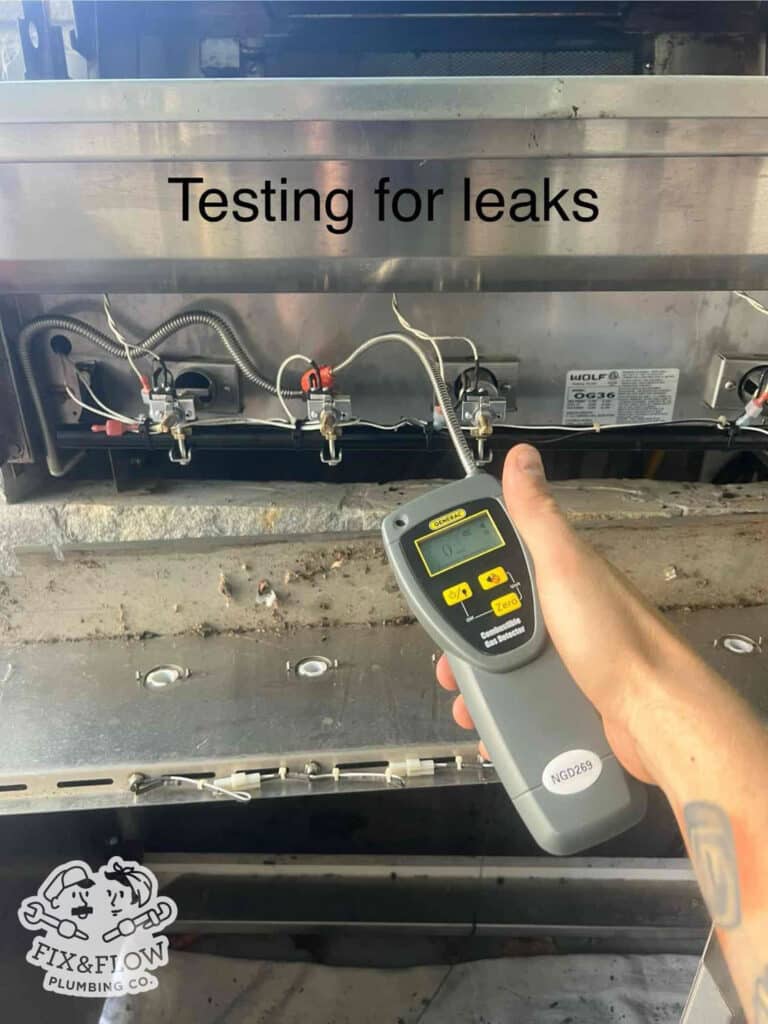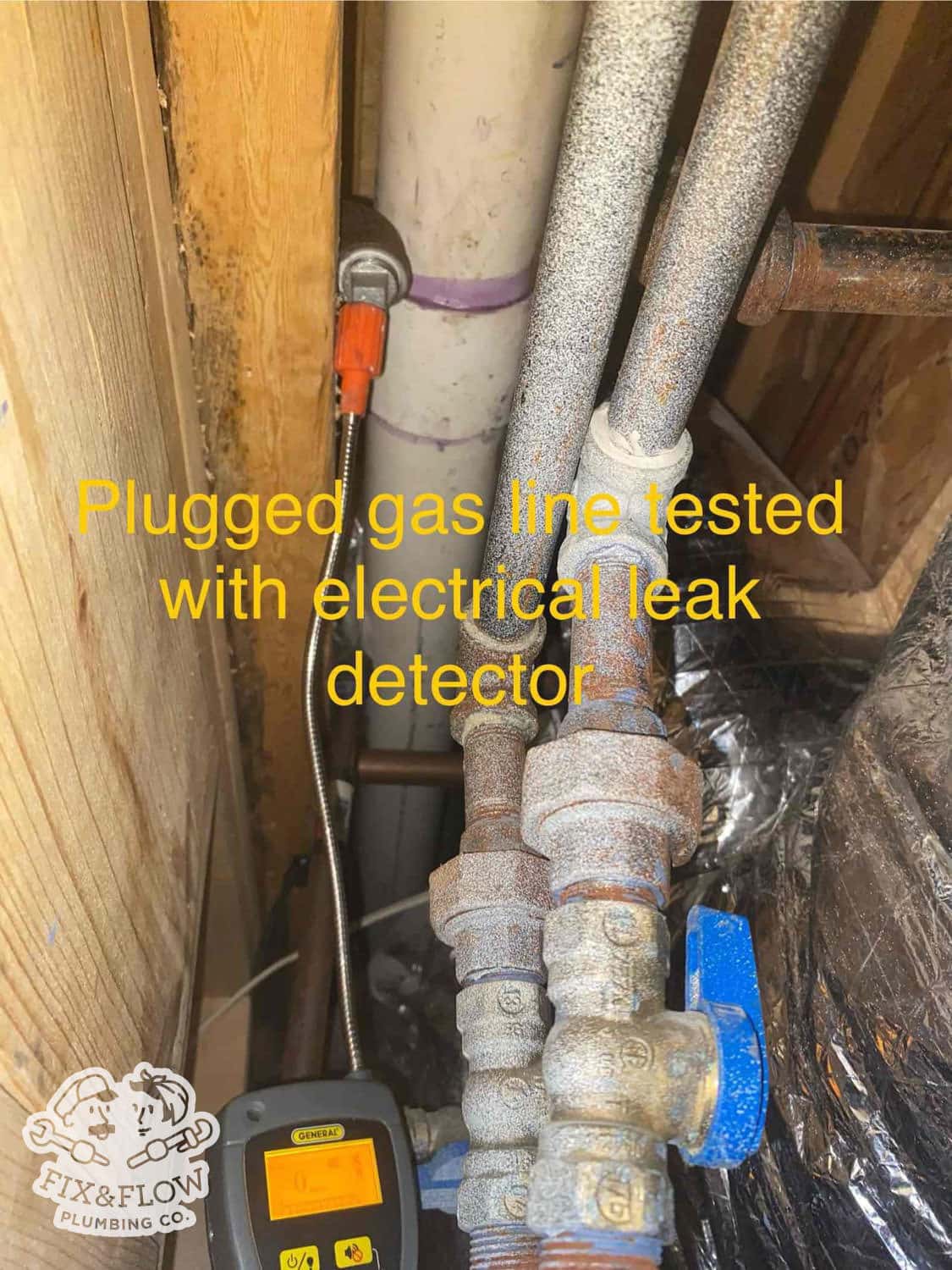What Are the Signs My Gas Line Needs Repair?
Natural gas keeps Atlanta homes warm, kitchens cooking, and water hot—but a damaged or leaking gas line can be dangerous and demands fast attention. If you’ve noticed unusual smells, sounds, or appliance issues, it’s worth learning the common warning signs and the safest next steps. This guide walks Intown Atlanta homeowners through the red flags, simple checks you can perform, and when to call a professional.
attention. If you’ve noticed unusual smells, sounds, or appliance issues, it’s worth learning the common warning signs and the safest next steps. This guide walks Intown Atlanta homeowners through the red flags, simple checks you can perform, and when to call a professional.
Important safety note: If you suspect an active leak—especially if you smell rotten eggs or hear hissing—leave the property immediately. Do not operate switches or electronics, and call your gas utility or 911 from a safe location. After the area is made safe, contact a licensed plumber for inspection and repair.
Top Warning Signs Your Gas Line Needs Repair
1) Strong “Rotten Egg” Odor
Natural gas is normally odorless, but utilities add a sulfur-like scent (mercaptan) to help you detect leaks. If you notice a rotten egg smell anywhere in the home, basement, crawlspace, near the gas meter, or by appliances, treat it as an emergency. Ventilate if safe to do so by opening doors, evacuate, and call the utility. Do not try to locate the leak yourself.
2) Hissing or Whistling Near Lines or Appliances
A steady hiss or whistle near a gas line, flexible connector, or appliance shutoff valve can indicate escaping gas. Even a small pinhole can produce noticeable sound in a quiet room. If you hear this, evacuate and call for help.
3) Dying or Discolored Vegetation Above Buried Lines
Outdoor leaks can starve plants of oxygen. If a patch of grass, shrubs, or landscaping suddenly turns yellow or dies while surrounding areas look healthy, there may be an underground leak along the service line to your home.
4) Bubbles During a Safe, External Soapy Water Check
When the utility has confirmed the area is safe and you are not smelling gas, a homeowner can sometimes notice obvious leaks on exposed exterior fittings by applying a soapy water solution and looking for continuous bubbling. Never perform this on interior piping if you suspect a leak, and never use open flame for testing. If you see continuous bubbles, stop and call a licensed professional.
5) Higher-Than-Normal Gas Bills
Unexpected spikes without a change in weather, usage, or occupants can point to a hidden leak or an appliance malfunction. Compare the current bill to the same month last year. A consistent increase may warrant a professional pressure test of the line.
6) Pilot Lights That Won’t Stay Lit or Sooty Flames
Frequent pilot outages, orange or yellow flames (instead of steady blue), or soot buildup around burners can signal poor combustion, inadequate venting, or gas delivery issues. These conditions should be evaluated promptly.
7) Physical Symptoms Indoors
Headaches, dizziness, nausea, fatigue, or confusion that improve when you leave the house can be associated with gas exposure or combustion byproducts. Treat this seriously: get fresh air, evacuate if you suspect a leak, and call for help.
8) Visible Damage or Corrosion on Piping
Rust, kinks, cracking, loose fittings, or damaged flexible connectors behind appliances are clear signs the line needs attention. Do not attempt DIY repairs on gas piping.
Appliance-Specific Clues to Gas Line Problems
Furnace or Boiler
Short cycling, burning odors, unusual noises, or error codes can indicate gas supply or venting issues. If the unit struggles to start or the flame looks unstable, shut it down and schedule an inspection.
Gas Water Heater
Intermittent hot water, pilot outages, clattering ignition, or scorching around the burner door can point to supply or combustion problems. Check for moisture or rust near the gas control valve—then call a pro.
Gas Range or Oven
Difficulty lighting burners, persistent clicking of the igniter, or an odd gas smell when the appliance is off can signal a line or valve issue. Do not continue to operate the appliance until it’s checked.
Gas Dryer
Longer dry times, weak heat, or a faint gas odor in the laundry area may suggest a supply problem or a faulty connector. Venting issues can compound risk, so schedule service quickly.
Common Causes of Gas Line Leaks in Atlanta Homes
- Aging steel piping or corroded fittings in older Intown homes (Grant Park, Inman Park, Virginia-Highland, Candler Park, Old Fourth Ward)
- Mechanical damage during renovations or landscaping
- Loose appliance connectors or worn valves
- Foundation settling that stresses rigid piping
- Improperly installed or unpermitted past work
Because many neighborhoods around Midtown and East Atlanta include older housing stock, proactive inspections and code-compliant upgrades are especially important.
What To Do If You Suspect a Gas Leak
- Leave the building immediately. Get everyone out, including pets.
- Do not use light switches, electronics, or phones inside the building.
- Do not start vehicles or equipment near the suspected leak.
- From a safe location, call your gas utility or 911.
- After emergency personnel deem the area safe, contact a licensed plumber to inspect, pressure test, and repair the gas line.
Professional Gas Line Inspection and Repair: What to Expect
A licensed plumber will typically:
- Perform a visual assessment of exposed piping, connectors, shutoff valves, and appliance hookups.
- Conduct a safe pressure test of the gas system to confirm the presence and size of a leak.
- Isolate problem sections and repair or replace damaged piping, valves, or flexible connectors.
- Verify proper combustion and venting at appliances, relight pilots, and check for code compliance.
- Document the work for permits and provide guidance on future maintenance.
In the City of Atlanta and surrounding jurisdictions, permits are often required for gas piping work. Using a licensed professional helps ensure compliance and smooth inspections, which protects your home value and safety.
Repair or Replace? Making the Right Call
Minor leaks at a connector or valve can often be repaired quickly. If your home has widespread corrosion, outdated materials, or repeated leaks, a partial or full repipe of the gas system may be the safer long-term solution. Your plumber can price both options and explain lifespan, safety, and resale considerations.
How Fix & Flow Plumbing Helps Atlanta Homeowners
Fix & Flow Plumbing serves Intown Atlanta neighborhoods from Grant Park and Reynoldstown to Virginia-Highland and Midtown. Our licensed team performs code-compliant gas line inspections, pressure testing, leak repairs, and safe appliance reconnects. We coordinate with local permitting, communicate clearly, and leave your home clean and safe.
If you’ve noticed any of the warning signs above—or just want peace of mind—schedule a professional gas safety check. We’ll pinpoint the problem and provide straightforward repair options.
Frequently Asked Questions
Is a faint gas smell always an emergency?
Treat any gas smell seriously. If it is persistent or strong, evacuate and call the utility or 911. If the utility clears the scene but you still notice intermittent odors, schedule a professional inspection.
Can I use a gas leak detector spray?
Only after the area has been deemed safe and only on accessible, exposed exterior fittings. Never test if you actively smell gas indoors. When in doubt, stop and call a professional.
How often should gas lines be inspected?
Consider an inspection during home purchases, major renovations, when adding or replacing gas appliances, and anytime you notice warning signs. Older homes may benefit from periodic checkups.
Will homeowners insurance cover gas line repairs?
Coverage varies. Insurers often exclude wear and tear but may cover sudden damage. Keep permits and documentation from licensed work to simplify future claims.
